Reissue CDs Weekly: The Odyssey - A Northern Soul Time Capsule | reviews, news & interviews
Reissue CDs Weekly: The Odyssey - A Northern Soul Time Capsule
Reissue CDs Weekly: The Odyssey - A Northern Soul Time Capsule
As all-encompassing as it gets on massive, thought-provoking Northern Soul box set
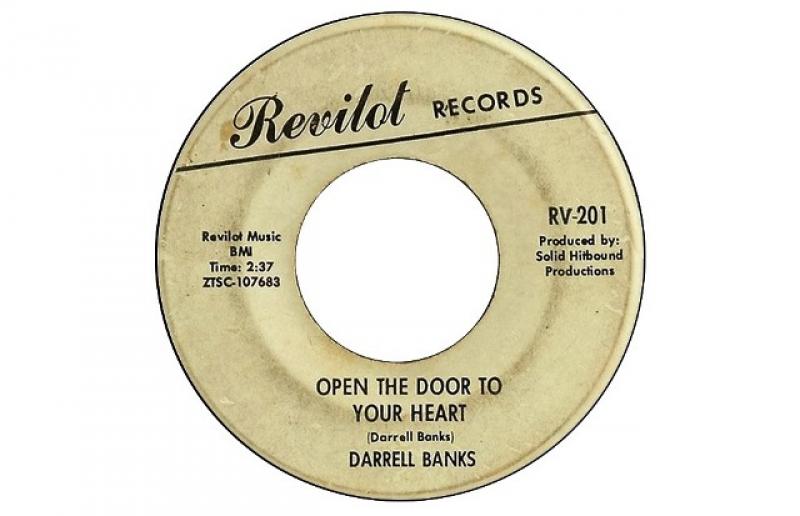
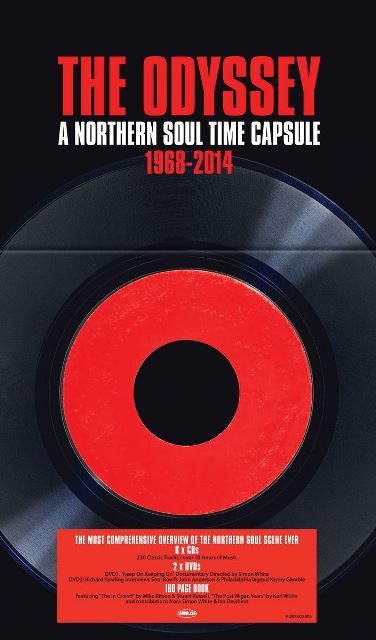 Various Artists: The Odyssey - A Northern Soul Time Capsule
Various Artists: The Odyssey - A Northern Soul Time Capsule
It begins with “Open the Door to Your Heart” by Darrell Banks. Over a mid-tempo rhythm, Banks sings in an affecting voice obviously schooled in gospel. Choppy Motown-style guitar is punctuated by brass, lifting both singer and the song through the choruses. A US hit for the independent Revilot Records label in 1966, it reached number two on Billboard’s R&B charts. The UK issue on London Records barely sold. A copy went for £14,500 last year. The song was early floor-filler on the Britain’s then emergent Northern Soul scene, which explains the high price. By any measure, it’s a fantastic record.
Just over 10 hours later, it ends with Timi Yuro’s “It'll Never be Over For me”. Yuro (pictured below left) also had no UK hits, but was well known for the extraordinarily emotive 1961 single “Hurt”, a US mainstream chart number four that year. She was white, but sounded black. “It'll Never be Over For me” was a 1968 flop on both sides of the Atlantic – it had to be here as it was issued as a B-side rather than an A-side. Like Banks, her single found favour on the Northern Soul scene, but in the Seventies and Eighties rather than the Sixties. Copies of the British issue sell for a mere £1000. Thankfully, the box set The Odyssey - A Northern Soul Time Capsule costs somewhat less than this, and much less than £14,500.
Sandwiched between Banks and Yuro are 228 Northern Soul staples of equal quality and/or interest. This is a major release. The music is spread across eight CDs housed in a fold-out wallet. There are also two DVDs and a fat book. The last Northern Soul box of note was 2007’s four-CD Keeping the Faith – 40 years of Northern Soul. Inevitably, there are duplications – Banks is on both – but The Odyssey is as all-encompassing as it gets. Marketed as a time capsule, it could maybe be buried or sent it into outer space to reveal what Northern Soul is and was about. It’s probably best to play it.
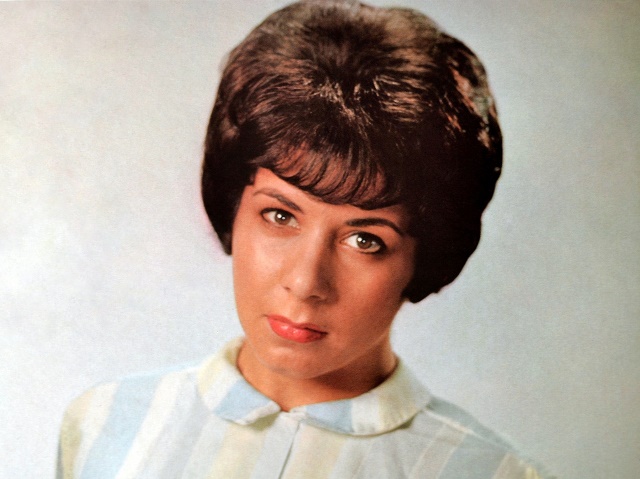 The Odyssey is sequenced according to the chronology of the music as heard when played out, mainly via well-known venues. Each disc is appropriately tagged, as the Goldmine label used to with individual releases. The Twisted Wheel kicks things off. After that, today’s Weekenders Era is reached via The Golden Torch, Blackpool Mecca, Wigan Casino, Cleethorpes Pier, The 100 Club and Stafford’s Top Of The World. The set seeks to soundtrack the dancefloor of each.
The Odyssey is sequenced according to the chronology of the music as heard when played out, mainly via well-known venues. Each disc is appropriately tagged, as the Goldmine label used to with individual releases. The Twisted Wheel kicks things off. After that, today’s Weekenders Era is reached via The Golden Torch, Blackpool Mecca, Wigan Casino, Cleethorpes Pier, The 100 Club and Stafford’s Top Of The World. The set seeks to soundtrack the dancefloor of each.
This does mean that, while representing Wigan Casino, novelties like “Title Theme from Joe 90” could rear their head, though Derek & Ray’s harpsichord-driven instrumental “Interplay” verges on easy listening. No matter. It’s one track amongst many and impartially demonstrates not everything on the Northern Soul scene is a classic or is, indeed, actually soul as it’s usually thought of.
Even more detached from standard classifications are non-soul singers who found odd tracks co-opted because the style or sound fitted Northern Soul templates. At the extreme end of this, Paul Anka was an unlikely candidate. More white singers crop up. As well as Yuro and Anka, there are Dean Parrish (pictured below right) and Frankie Valli.
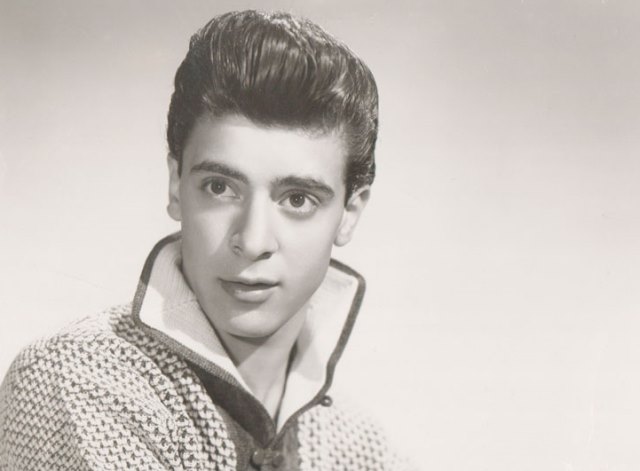 If it filled a dancefloor, it was co-opted as Northern Soul. The performer's context and identity could be and often was irrelevant, though it seems ludicrous that a singer as white bread as Anka could ever be thought of as soul. Nonetheless, his “When we Get There” is a gem. Chronology was also not an issue for a scene strip-mining the past with gusto. Few records became popular at the time they were originally issued. Frankie Valli and the Four Seasons’ “The Night” is a rare exception. A passing comment on one of the DVDs importantly highlights that Northern Soul is what is played in a Northern Soul venue.
If it filled a dancefloor, it was co-opted as Northern Soul. The performer's context and identity could be and often was irrelevant, though it seems ludicrous that a singer as white bread as Anka could ever be thought of as soul. Nonetheless, his “When we Get There” is a gem. Chronology was also not an issue for a scene strip-mining the past with gusto. Few records became popular at the time they were originally issued. Frankie Valli and the Four Seasons’ “The Night” is a rare exception. A passing comment on one of the DVDs importantly highlights that Northern Soul is what is played in a Northern Soul venue.
Although Northern Soul seeped into the mainstream pop consciousness during the 1990’s Britpop era – The Odyssey, along with last year’s film Northern Soul, is the culmination of this process – the scene before then was not totally apart. Records could be propelled into the charts on the back of their popularity in clubs. Tami Lynn’s “I’m Gonna Run Away From You” (included here) charted in 1971 and 1975, despite having originally been released in 1965. Soft Cell covered Gloria Jones’s “Tainted Love” (her recording is included). As noted in the book, the already strong northern scene was identified for much of the rest of Britain by Dave Godin in June 1970 under the headline The Up-North Soul Groove. Not totally apart then, but still largely under the south’s radar.
In terms of its tracklisting, The Odyssey is a flawless listen. Tastes may vary, but the standard is high. However, there are close to 30 repeats from the soundtrack CD of Northern Soul which was issued by the same label, which may rankle with some potential buyers.
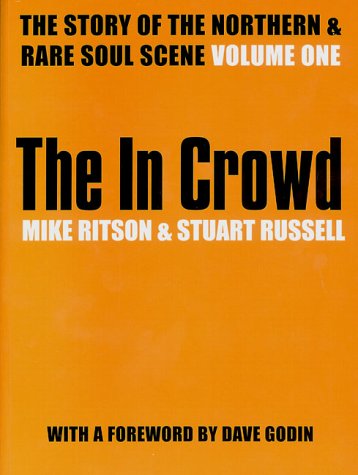 The mastering of The Odyssey is fantastic. The Luther Ingram Orchestra’s “Exus Trek” sounded as though it was sourced from tissue paper on previous comps. Here, it leaps from the speakers with a previously unheard dynamism. But the pin-sharp fidelity does reveal shortcomings in the sources: Robby Lawson’s “Burning Sensation” and Herbert Hunter’s “I Was Born to Love You” exhibit a top-end distortion. Presumably, the equipment used for the original recordings was overloaded or, possibly, the source was compromised. Curiously, the package gives no credit for the mastering. It would have been interesting to read about the sourcing and subsequent handling of the tracks.
The mastering of The Odyssey is fantastic. The Luther Ingram Orchestra’s “Exus Trek” sounded as though it was sourced from tissue paper on previous comps. Here, it leaps from the speakers with a previously unheard dynamism. But the pin-sharp fidelity does reveal shortcomings in the sources: Robby Lawson’s “Burning Sensation” and Herbert Hunter’s “I Was Born to Love You” exhibit a top-end distortion. Presumably, the equipment used for the original recordings was overloaded or, possibly, the source was compromised. Curiously, the package gives no credit for the mastering. It would have been interesting to read about the sourcing and subsequent handling of the tracks.
Five new essays are included in the book. The bulk of the page count though is a reformatted yet in-full reprint of Mike Ritson and Stuart Russell’s 1999 book The In Crowd (pictured above left in its original form). It's a definitive and engaging internal view (which spawned its own double-CD spin-off compilation), but using it results in disconnects. For instance, there's a full-page illustration of the label of Tony Clarke’s “The Entertainer”, but it's a track that isn't included on The Odyssey. There are other examples. Including The In Crowd means it is difficult to home in on information (where there is any) about what is heard – a track-by-track breakdown would have been very useful, though granted, The Odyssey is about the scene, its evolution and longevity, and artists themselves often depersonalised, which is one of the reasons someone like Anka could get through.
Two DVDs are given over to interviews: two long ones on Disc Ten (strictly for fans only), and a grab-bag of movers, shakers and fans on Disc Nine. Despite the rough-and-ready nature, Disc Nine is an entertaining oral-history summation.
Despite the niggles, the thought-provoking The Odyssey - A Northern Soul Time Capsule is an essential listen. At £80, it is keenly priced and hopefully not a time capsule which proves to be a full stop. This invigorating, irresistible and superb music will always be vital. Popular culture owes the Northern Soul scene a debt for propagating music which may otherwise have been forgotten. In doing so and decontextualisng it, the music is rendered eternally contemporary. Long may this subversion of the nature of nostalgia continue.
Explore topics
Share this article
more New music
 The Songs of Joni Mitchell, Roundhouse review - fans (old and new) toast to an icon of our age
A stellar line up of artists reimagine some of Mitchell’s most magnificent works
The Songs of Joni Mitchell, Roundhouse review - fans (old and new) toast to an icon of our age
A stellar line up of artists reimagine some of Mitchell’s most magnificent works
 Album: Taylor Swift - The Tortured Poets Department: The Anthology
Taylor Swift bares her soul with a 31-track double album
Album: Taylor Swift - The Tortured Poets Department: The Anthology
Taylor Swift bares her soul with a 31-track double album
 Album: Jonny Drop • Andrew Ashong - The Puzzle Dust
Bottled sunshine from a Brit soul-jazz team-up
Album: Jonny Drop • Andrew Ashong - The Puzzle Dust
Bottled sunshine from a Brit soul-jazz team-up
 theartsdesk on Vinyl: Record Store Day Special 2024
Annual edition checking out records exclusively available on this year's Record Store Day
theartsdesk on Vinyl: Record Store Day Special 2024
Annual edition checking out records exclusively available on this year's Record Store Day
 Album: Pearl Jam - Dark Matter
Enduring grunge icons return full of energy, arguably their most empowered yet
Album: Pearl Jam - Dark Matter
Enduring grunge icons return full of energy, arguably their most empowered yet
 Album: Paraorchestra with Brett Anderson and Charles Hazlewood - Death Songbook
An uneven voyage into darkness
Album: Paraorchestra with Brett Anderson and Charles Hazlewood - Death Songbook
An uneven voyage into darkness
 theartsdesk on Vinyl 83: Deep Purple, Annie Anxiety, Ghetts, WHAM!, Kaiser Chiefs, Butthole Surfers and more
The most wide-ranging regular record reviews in this galaxy
theartsdesk on Vinyl 83: Deep Purple, Annie Anxiety, Ghetts, WHAM!, Kaiser Chiefs, Butthole Surfers and more
The most wide-ranging regular record reviews in this galaxy
 Album: EMEL - MRA
Tunisian-American singer's latest is fired with feminism and global electro-pop maximalism
Album: EMEL - MRA
Tunisian-American singer's latest is fired with feminism and global electro-pop maximalism
 Music Reissues Weekly: Congo Funk! - Sound Madness from the Shores of the Mighty Congo River
Assiduous exploration of the interconnected musical ecosystems of Brazzaville and Kinshasa
Music Reissues Weekly: Congo Funk! - Sound Madness from the Shores of the Mighty Congo River
Assiduous exploration of the interconnected musical ecosystems of Brazzaville and Kinshasa
 Ellie Goulding, Royal Philharmonic Concert Orchestra, Royal Albert Hall review - a mellow evening of strings and song
Replacing dance beats with orchestral sounds gives the music a whole new feel
Ellie Goulding, Royal Philharmonic Concert Orchestra, Royal Albert Hall review - a mellow evening of strings and song
Replacing dance beats with orchestral sounds gives the music a whole new feel
 Album: A Certain Ratio - It All Comes Down to This
Veteran Mancunians undergo a further re-assessment and reinvention
Album: A Certain Ratio - It All Comes Down to This
Veteran Mancunians undergo a further re-assessment and reinvention
 Album: Maggie Rogers - Don't Forget Me
Rogers continues her knack for capturing natural moments, embracing a more live sound
Album: Maggie Rogers - Don't Forget Me
Rogers continues her knack for capturing natural moments, embracing a more live sound

Add comment